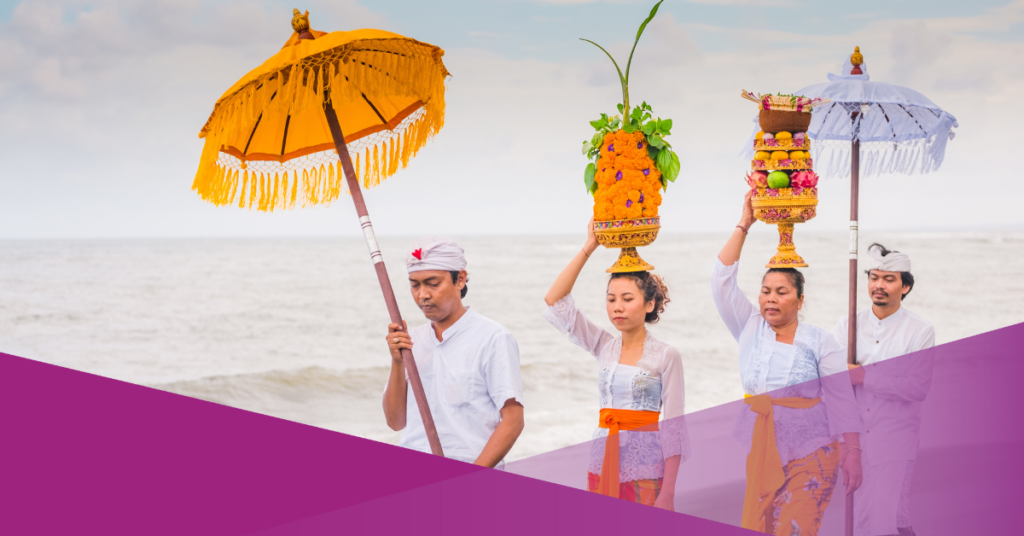Bali’s known for its beautiful views and lively culture, making it a top spot for tourists. However, visitors often fall ill with “Bali Belly,” a type of diarrhea caused by tainted food or water in digestive system. This guide offers invaluable advice for preventing and treating Bali Belly on your journey as traveller in Indonesia.
What is Bali Belly?
Bali Belly, a common travel disease, causes stomach issues like diarrhea, nausea, and stomach pain. What causes Bali belly is your body’s reaction to different caused by bacteria, viruses, or parasites in the food or water you consume when travelling abroad. According to the CDC, up to 70% of travellers may encounter this condition while travelling.
Get To know Common Symptoms of Bali Belly While You Travel
These are common causes of Bali belly you must pay attention for:
- Diarrhea: This causes acute abdominal pain and may cause increased frequency in the restroom. It often happen caused by consuming contaminated food and water.
- Nausea and Vomiting: Some people even develop nausea, and in serious conditions, this may further lead to vomiting, which worsens dehydration and electrolyte imbalance.
- Loss of Appetite: One of the typical characteristics in the initial stages of Bali Belly is a loss of interest in food intake due to the reaction of the body to gastrointestinal irritation.
- Fever: Mild fever might accompany other symptoms while the body fights the infection.
- General feelings of malaise are also common, in that travelling persons may feel weak or unwell in general which seriously impairs their capacity to enjoy activities.
- Dehydration Signs: Dark-coloured urine, vertigo, and dry mouth are some signs that hint at dehydration, usually because of diarrhea and vomiting.
How to Avoid Bali Belly and Tips to Prevent Bali Belly for Traveller
1. Drink Bottled Water
Always use bottled water with an unbroken seal. Avoid drinking tap water entirely and use filtered water including for brushing your teeth, and refrain from consuming ice cubes unless you are certain they are made from purified water. This first step will help you to avoid getting Bali belly.
2. Be Selective with Food Choices
Select eateries and street side vendors that look clean and become more aware of consuming contaminated food or water. This signals better hygiene practices and a lower chance of food-borne illnesses. If available, eat cooked foods. And try to make all your meals hot ones. Avoid anything that might be a primer for Bali belly—raw fruits and vegetables.
3. Practice Good Hand Hygiene
Another way to avoid Bali belly is Wash your hands frequently with soap and water, especially before meals and after using the restroom. If soap is unavailable, carry hand sanitiser. This is crucial to avoid those sellers who don’t wash their hands.
4. Limit Alcohol Consumption
Alcohol consumption can irritate your stomach that might lead to stomach cramps. Stay hydrated with water or electrolyte drinks to counterbalance any alcohol intake to reduce the risk of getting serious illness.
5. Pack Medications
Always bring you medications such as Imodium or activated charcoal tablets to manage symptoms if they arise. Consult and seek medical advice with doctor regarding any medicine you plan to take.
Enjoy Your Bali Trip to the Fullest and Be Safe in Indonesia!
Although Bali Belly can be an unwelcome part of travelling in Bali, by understanding the causes and putting in place preventive measures, you can considerably reduce your risk. Be conscious of what you eat and drink, practice good hygiene, and learn how to react when you fall sick to enjoy everything that Bali has to offer without the angst of gastrointestinal distress. Most importantly always have your travel insurance and Remember, a little extra caution goes a long way toward a healthy and enjoyable trip!
FAQs
How Long Does It Take for Bali Belly To Kick In?
The onset of symptoms can occur quite rapidly, often within 2 to 5 hours after exposure to pathogens such as bacteria, viruses, or parasites.
Is Bali Belly Contagious?
Bali Belly, or traveler’s diarrhea, is generally considered contagious, but not in the same way as airborne illnesses. So, avoid someone who is sick to prevent from making you sick.
How To Treat Bali Belly?
Stay hydrated, eat BRAT Bananas, Rice, Applesauce, and Toast that are gentle in your stomach, herbal medicine if available, and if it is getting worse go immediately to nearest hospital.


































